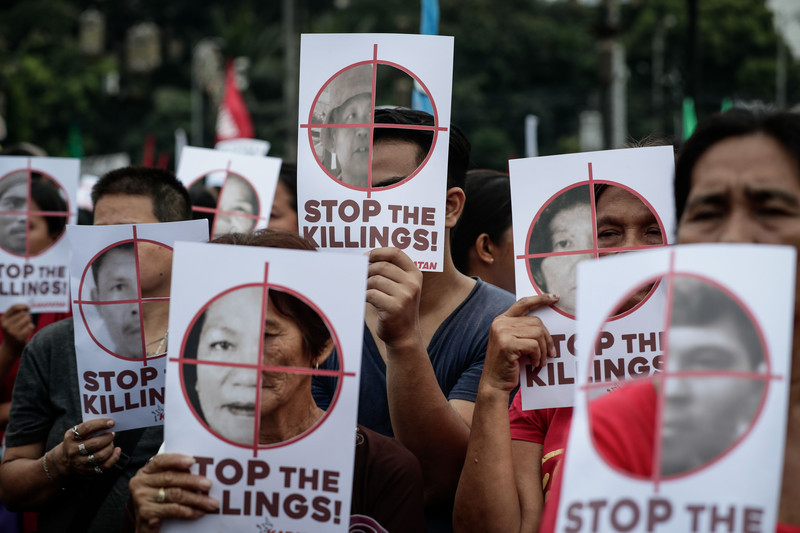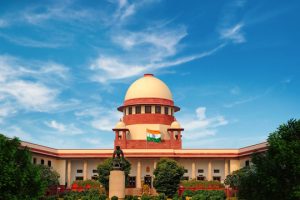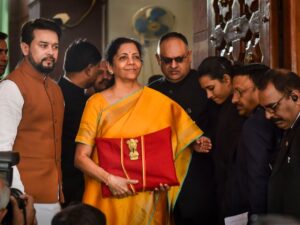Table of Contents
Introduction
Extrajudicial killings as the name itself suggests are the killings which are not under the purview of laws. According to the survey recently there has been a sharp increase in police encounters, where police have taken stringent actions towards hard-core criminals. Media has covered details of the most recent encounter of four men who allegedly raped and murdered a veterinarian in Hyderabad and of a Kanpur gangster Vikas Dubey and his five subordinates were shot down by police. In the eyes of the general public, police were hailed as HEROES overnight and such killings were called real justice to the victim families, police officers were showered with ‘flowers’ and ‘milk baths’ and were titled as ‘Super Cops’.
However, Intellectuals have raised questions about the validity of the tool of extra Judicial killings which is devised and resorted to by a large section of the Indian Police. Many have debated over whether a democratic country should follow the constitutional norms and adhere to the due process of law or shall it adopt the measures of retributive justice to bring instant and speedy justice to the victims’.
History of Encounter Policy
Since the 20th century the philosophy of encounters have come into existence both in India and Pakistan which gives power to the police or armed forces to raise their weapons in the act of self defense against the suspected criminals and terrorists as a means of Extra-Judicial killings. During the 1990s and 2000s Mumbai police used this power as a means to eradicate city mafias and underworld bosses.
In Pakistan also, Sindh Police is also notorious for extra-judicial killings as fake encounters in Karachi. According to the National Human Rights Commission (NHRC) of India survey, there were many cases of alleged fake encounters. Killing of gangster Manya Surve on 1 January 1982, by police officers Raja Tambat and Isaque Bagwan at the Wadala area is often referred to as the city’s first recognised encounter killing. From that period until early 2003, the police killed 1,200 alleged criminals.
Another important case is of Veerappan, the notorious forest brigand, who was reportedly killed by the Special Task Force (STF) in an encounter on 18 October 2004. Some human rights organizations claimed that the circumstantial evidence indicated that he was killed in a fake encounter after being tortured by the police.
Legality Of Extra-Judicial Killings
However, nothing must be done to settle personal feuds or with any ulterior Malafide motives, which could be apparent from the facts of each case. Similarly, Section-100 of IPC, exception 3 of Section 300 of IPC, Section-46 of the Code of Criminal Procedure (CrPC), etc. lay down similar provisions with regard to investigations in extra-judicial killings and cases of culpable homicide. Although, there is no provision in the Indian law that directly authorizes the encounters of criminals. The Supreme Court in “Om Prakash vs State of Jharkhand” held that “A Police official is not duty bound to take a person’s life merely because he is a heinous or dreaded criminal and it was further stated that “encounters” are deemed to be “state sponsored terrorism”. The court here clearly stated those police officials who kill criminals and take law in their hands and project the incidents of these killings as encounters must be deprecated and “These killings are not deemed as legal by our criminal justice system”.
But the Supreme Court in the case of PUCL vs State of Maharashtra case (2014), was dealing with writ petitions questioning the genuineness of 99 encounter killings by the Mumbai Police in which 135 alleged criminals were shot dead between 1995 and 1997. In its judgment the “Supreme Court then laid down the following 16 Point Guidelines as the standard procedure to be followed for thorough, effective, and independent investigation in the cases of death during police encounters, if any police personnel is found guilty of not following the due process of law, he will be charged under Section-299 of the Indian Penal Code for culpable homicide. And, the compensation must be granted to the kin of the deceased, in case the police officers are prosecuted on the basis of investigation.”
Exceptions when extrajudicial killings are legal
In the wake of rising criminal activities against the state, growing outrage over the crimes against women, and threat of terrorism and growing of mafias, syndicate bosses and political goons. Police have been given extra powers to take actions of their own accord deemed fit to prevent the rule of law. Some of these provisions which give innate powers to police are as follows:
- Under Section-96 of the Indian Penal Code (IPC), “every human being has the right to private defense which is a natural and an inherent right“. Therefore, the police force have also been given the right to injure or kill the criminal, for the sole and only purpose of self-defense or where it is imminently necessary for the maintenance of peace and order.
- Similarly, section 100 of IPC comes into the scheme of things when an extra judicial killing is alleged to be a culpable homicide amounting to murder. “It states that a public official in pursuance of its duty of advancing criminal justice to the society, if through excessive force kills any person then he will be not liable for culpable homicide amounting to murder.”
- Section 46 of CRPC gives authorization to police officials to even cause death in the process of using force to arrest an accused who if proven guilty would be charged with death penalty or life imprisonment . This provision is an exception to the invalidity of extra judicial killing. This provision rightfully gives powers to police officials for the arrest of an accused, but sometimes officials misuse this power given to them and take away accused life because of some ulterior motive even when it is not needed for arresting an individual.
- Similarly, Armed Forces Special Powers Act (Afspa) Act, 1958 gives leverage to personnel to use excessive force even to the point of taking someone’s life in pursuance of maintaining law and order. However, the phrase maintaining law and order is very wide and is such that it can easily act as a shield for “fake encounters”.
UP’s Encounter Policy & It’s Normalisation
According to the survey since March 2017, when the incumbent government came to power in UP, more than 100 people have been killed in the course of such shootings by the police that are considered to be extrajudicial killings by the civil society organizations in India. Vikas Dubey being the 119th accused to be killed in such encounters since Yogi Adityanath became UP’s CM. This reveals that police vigilantism is apparently being used as a tool in the hands of political parties and politicians in power to further their own agendas. There are clear signs of the police-politicians-criminals nexus that exists within the system. In the case of Vikas Dubey, when the gangster was engaged in extortion, land grabbing, and attempted murder, he was being approached and photographed with politicians. He was also planning to contest state assembly elections himself in 2022. Also before his encounter he was involved in killing 8 policemen and internal information was being provided to him, which helped him to escape from police grasp. Therefore, such close connections with politics granted Dubey an almost invisible protective shield from the law. Only had Dubey been put through the mandated judicial process instead of being killed in a so-called encounter, it would have been possible that important information about this dangerous nexus could have been exposed. In cases such as this one, encounter killings are seemingly used to protect powerful people and hide information of high public interest. Therefore his death was used as a means to cover all the dark secrets of the Uttar pradesh government and the faulty system of Police.
Encounters And Its Influence Over Public Emotions
“Constitutional Democracy Is Now A Theatre, Public Fantasy Being The Guiding Principles”
Findings show that public satisfaction with police is shaped by people’s attitudes about how well police perform their job, police legitimacy, and police use of fair procedures.
In both instances, public sentiment was overwhelmingly in favor of these extrajudicial executions, even as they did attract criticism from some quarters, led by human rights groups. People showered rose petals and paraded cops on their shoulders in the aftermath of the Hyderabad encounter. Pop culture, too, has played its part in glorifying the practice; massively popular police-centric Bollywood films – such as “Rowdy Rathore,” “Singham,” and “Dabangg” – regularly depict scenes in which the policeman-protagonist single-handedly kills the villainous criminal in a heroic climax.
When extrajudicial killings are encouraged by politicians in power, celebrated in popular culture, and enabled by the general public, it cannot really come as a surprise that the police conduct these operations with complete impunity, utter disregard for due process of law, and even a visible lack of effort or creativity in trying to cover their tracks. This emboldenment becomes a slippery slope that allows the police to take matters into their own hands more and more, implicating and executing innocent people and deciding for themselves who deserves what punishment.
The impact of these enabled police excesses has been felt by those who peacefully protested the controversial Citizenship Amendment Act (CAA), especially in Peoples Union for Civil Liberties v. State of Maharashtra (2014) observing that this “Encounter” philosophy is a criminal philosophy, had warned policemen that they would not be excused for committing murder in the name of “encounter” on the pretext that they were carrying out the orders of their superior officers or politicians.
Conclusion
Extrajudicial killings are considered as violation of basic human rights and it also violates the right of “Audi Alteram Partem” that means both the parties have a right to be heard before a court of law”. These killings have been very prevalent in contemporary times and have created quite a lot of stir in the country. The legality of this issue has been a point of contention for a brief period of time now. The government needs to recognise this issue and work towards enacting laws to curb the misuse of such power.



